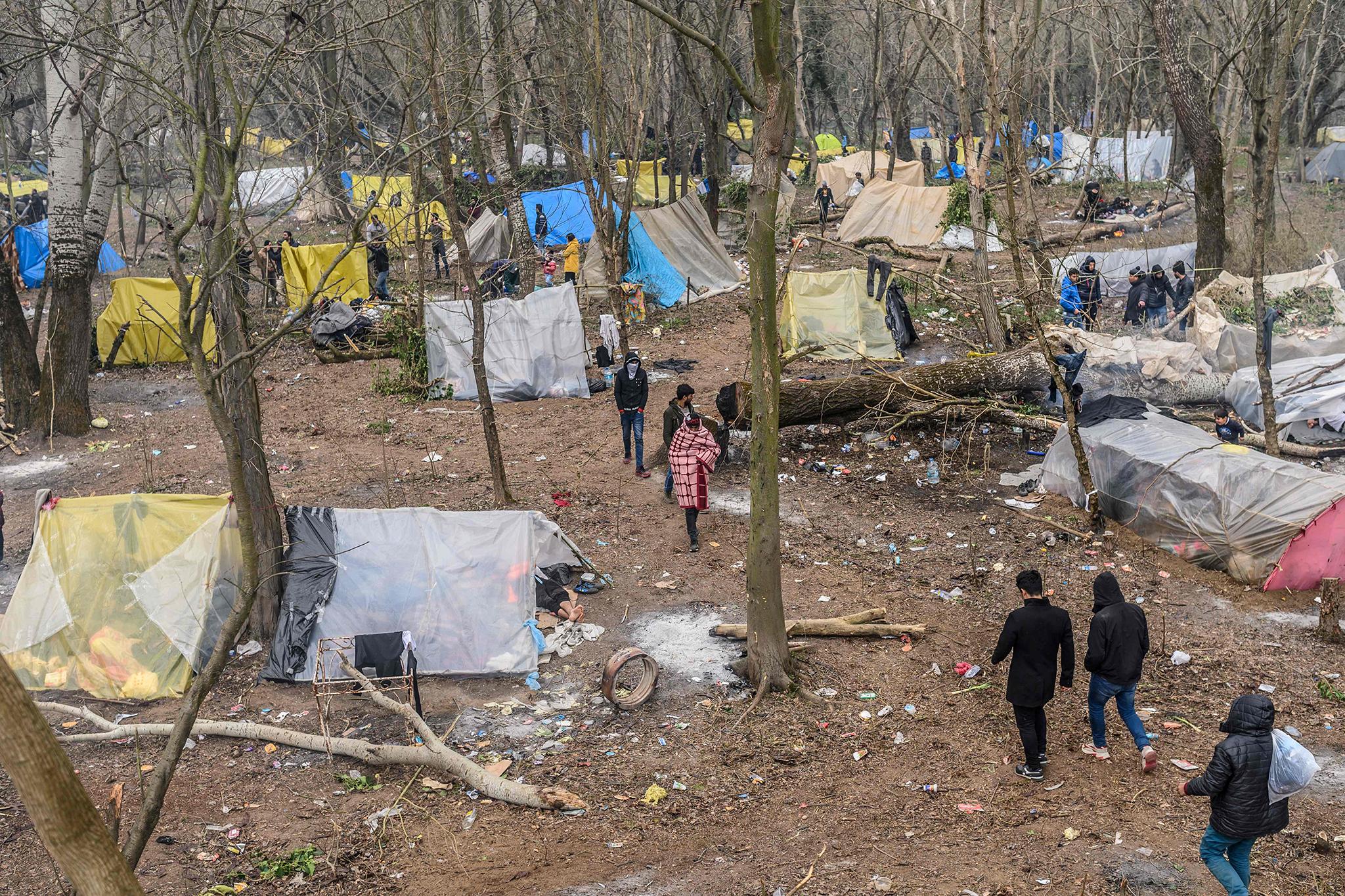BOOMTOWN ON THE BORDERLANDS
KARAAGAC, Turkey (Reuters) - For members of the Roma minority in the Turkish village of Karaagac on the border with Greece, the arrival of thousands of migrants desperately seeking to cross into the European Union could not have been better news.
Sevgi Katirci rides a horse cart in the town of Karaagac near the Turkish-Greek border in Edirne, Turkey, March 6, 2020. REUTERS/Joseph Nasr
Poor and living mainly from cultivating their gardens and collecting cardboard and plastics for recycling, Roma families are now looking to cash in catering to the needs of 4,000 migrants now in a makeshift tent camp at the frontier.
Farmers set up stands selling everything from tomatoes and cucumbers to quince and pomegranate. Others sold mineral water, bread, yoghurt and tinned teapots.
A few turned their horse-drawn carts into taxis to ferry exhausted migrants and their shopping to the border.
Among all the Roma scrambling to make more money on the edge of the village overlooking fields and a dirt road running to the Pazarkule border crossing, teenager Sevgi Katirci stood out.
She was the only woman riding a horse cart and her clients were solely men. Wearing a green jacket and black jeans, she would gracefully whip her horse and race to the border as her passengers held tight.
“The migrants are here today, but they could be gone tomorrow,” said her father Mehmet, operating his own cart and watching his hard-working daughter with pride. “So we have to make the best of it.”
Like many children of Roma in Turkey, Sevgi doesn’t go to school. Her work helps her family earn about 150 Turkish liras ($25) a day, charging 10-15 liras per passenger.
The Roma and their foreign clients have turned the dirt road to the border into a multicultural market where migrants compare notes on their experiences and discuss what to do next.
Hassan Tunai, who was selling water bottles, fruit juice and yoghurt, said earning money from the migrants left him with a bad feeling.
“I wish it would not be like this,” he said, wearing sunglasses and hoisting the Turkish flag on his stand. “When we see them (the migrants), the money that we earned loses its meaning. It does not make us happy.”

5 March 2020
Migrants prepare for the coming night in a forest in the buffer zone at the Turkey-Greece border a crossing point
AFP/Getty
No comments:
Post a Comment